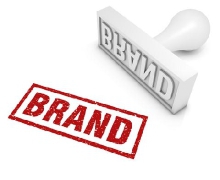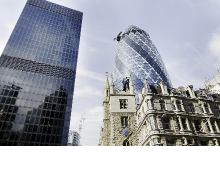
Trademark registration basic facts
Goods and services: Classes of Nice
A trademark's scope of protection extends to the goods or services designated in the trademark application.
Identical marks may thus coexist if the marks are used in connection with unrelated products. There is one exception to this rule, for well-known trademarks. Those marks that reach the status of a well-known mark do not need to be registered. This implies that the scope of protection extends to all categories of products and services. For example, the brand Chanel receives an extensive protection outside of luxury products. Someone who would attempt to register the mark Chanel, say, for beauty salons, hotels and even furniture, would be prevented from doing so according to trademark law. This rule receives a quite large application due to the large number of countries member of the Paris convention 1883, signed by 174 countries.
The goods and services are classified according to an international treaty that defined 45 classes. These classes are called “Nice classes” from the place of this treaty signature. The purpose of a trademark is to give consumers the ability to ascertain the source of goods and services. This is why trademarks must be used in commerce. In the European Community, trademarks that are abandoned or not exploited after five consecutive years can be cancelled if anyone with a legitimate interest (such as a competitor) files a request for the trademark's cancellation.
Geographic scope
A trademark title confers to its owner an exclusivity of exploitation of the said mark only within markets and geographic areas in which the mark is registered. The industrial property title is obtained by registration at the relevant intellectual property Office. The territorial protection granted is limited to the “jurisdiction” of the said Office. As a consequence, a trademark is either national or regional (like the European trademark). There is no such thing as a global trademark that would be valid worldwide.
What is often described as an international trademark is a set of trademarks filed according to international treaties, at the World Intellectual Property Office in Geneva. The scope of the resulting trademarks is still national or regional in accordance with the countries designated in the international trademark application.
Identical marks may thus coexist if the marks are used in different territories.
Who can register a trademark?
 A trademark is owned by the person who is designated as the "owner" in the registration form. A trademark can be owned by several legal persons or several individuals. It can also be owned collectively by associations or companies – in which case, the mark is referred to as a collective trademark (for example collective trademarks are used to control the benefit of a regional origin, such as “Champagne” or "Prosciutto di Parma"…). Sometimes, this type of trademark is called a certification mark (for example the mark "Parmigiano-Reggiano" for Italian cheese). In Europe, the new logo for organic products is a collective mark owned by the European Union. This logo aims to offer consumers "confidence about the origins and qualities of their food and drink and its presence on any product ensures compliance with the EU organic farming Regulation".
A trademark is owned by the person who is designated as the "owner" in the registration form. A trademark can be owned by several legal persons or several individuals. It can also be owned collectively by associations or companies – in which case, the mark is referred to as a collective trademark (for example collective trademarks are used to control the benefit of a regional origin, such as “Champagne” or "Prosciutto di Parma"…). Sometimes, this type of trademark is called a certification mark (for example the mark "Parmigiano-Reggiano" for Italian cheese). In Europe, the new logo for organic products is a collective mark owned by the European Union. This logo aims to offer consumers "confidence about the origins and qualities of their food and drink and its presence on any product ensures compliance with the EU organic farming Regulation".
MAS LEGAL is a law firm located in London, UK. Practice regulated by the Solicitors Regulation Authority of England and Wales, registration number 468289. Admission to practice in France. Intra Community VAT No GB 144 873491.
MAS LEGAL is part of an independent lawyer network with Offices in Canada, France, Germany, Ireland, Italy and the USA. MAS LEGAL provides trademark services covering Europe, Canada, USA, China, Japan, and over 76 other countries.

 Information about packages, what is included, terms, search options
Information about packages, what is included, terms, search options





 London +44 (0)20 3126 4882
London +44 (0)20 3126 4882 Quick Contact Form
Quick Contact Form 180 Piccadilly
180 Piccadilly